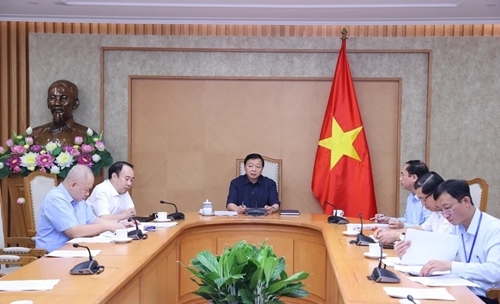Chairing a Hanoi meeting on the policies, the Deputy PM said it is a must to identify the role, position and responsibility of the State, the Vietnam Fatherland Front, organizations, agencies, businesses, and individuals in mobilizing and using resources for social housing.
    |
 |
|
Deputy Prime Minister Tran Hong Ha speaks at the working session. |
In this regard, he asked the Ministry of Construction to coordinate with the ministries of agriculture and rural development, planning and investment, finance, and natural resources and environment to complete review reports and propose support mechanisms and policies.
The State should play a role in providing direct support for revolution contributors, while local authorities should take the responsibility for the materialization of incentives, the official continued.
According to a report presented at the meeting, during the 2013-2019 period, a total of 339,176 household contributors (96.7%) received assistance in building and repairing their houses.
Between 2014 and 2021, the housing support came to 19,032 out of 23,797 flood-affected poor households.
Deputy Minister of Planning and Investment Do Thanh Trung said a wide range of housing programs and policies have been rolled out, notably the national target programs on new-style rural area building, socio-economic development in ethnic minority-inhabited and mountainous areas, and sustainable poverty reduction.
Due to their differences in implementation methods, local authorities, especially those at the grassroots level, have met difficulties in identifying beneficiaries, he said, pointing to other limitations during the implementation.
Source: VNA